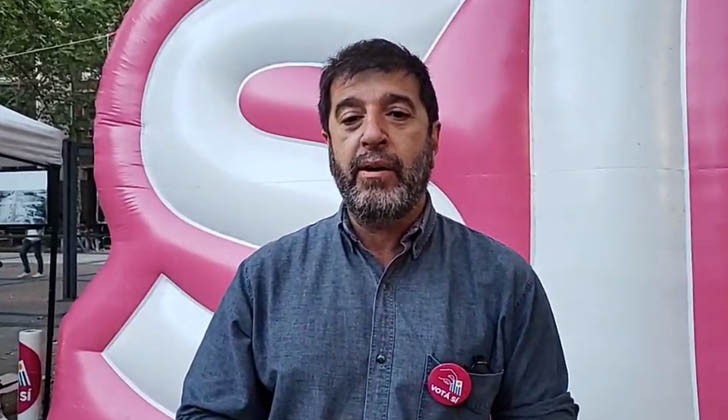Some were amazed at the news that a well-known film director like Lester Hamlet was going to make a soap opera. Some, in more or less intimate circles, considered that making a soap opera lowered it. But Hamlet wanted to direct a soap opera. And those who know know that this is one of the most complex audiovisual products. And one of the most popular impact. I wish other top directors would dare to do more television.
already speaking of You (Cubavisión; Monday, Wednesday and Friday, 9:15 pm): the skill, sensitivity and good taste of its director are evident when appreciating the screen production. And also the identification with the type of story that honors the genre. Here the serial is assumed without complexes, without underestimating the usual codes. It is to be appreciated that Hamlet and his team, by intending to make a telenovela (for the schedule and the public of that proposal in Cuba), have not wanted to put in crisis what is traditionally understood as a telenovela. Some failed experiments have occupied that space.
The fidelity to a spirit is evident, and the writers have opted for the ensemble that is so dear to the genre. Many plots, many conflicts, many characters. But a balance is not always achieved in the approach, in the very evolution of all the plot lines. There is gloating in some plotlines and characters, while others don’t seem to go deep enough.
There is a diversity of registers from the acting point of view and also in the nature of the stories that somewhat weighs down the uniformity of the dramatic body. There are very realistic characters (and plots) and others that are more farcical than expected, often coexisting in the same action plans. Although over time the viewer has become accustomed to many of these “jumps” (and empathy with the actors helps to naturalize them), the variations in tone can come to collide.
Obviously, a telenovela admits (and even needs) less intense plots, humor, relaxation… but it would be convenient not to lose sight of the essential coherence. And here the main problem seems to be in the histrionic projection. There are those who have put more on it (which would not be a big problem if everyone bet on the emphasis).
Anyway, there is a lot of romance, the eternal ups and downs of love, the fight of opposites that make a soap opera. There are heroes and villains. And also, a sensitive look at certain areas of society, the family, the individual. No one will be able to say that this is an eminently frivolous proposal.
And the stories (even the slower ones) have a hook. The changes in the context have done their thing: the Cuba of right now is not, in many respects, the same as the one before the pandemic, in which history was conceived. But without claiming to be a work of denunciation, You It has also made visible issues that are always pressing, such as violence, emigration or the concrete possibilities of professional achievement. Although (and the title reaffirms it) personal relationships, the most intimate conflicts of the human being are the chicken of the rice with chicken.
We should talk about music (and musicalization, which is not the same); but we will do that in a future comment. We will say that the commitment to socialize excellent themes of Cuban popular music and songwriting is more than plausible. And the visuality of the telenovela (composition of shots and other values of photography) transcends the ordinary. That will also be the subject of another comment. From You There is a lot of fabric left to cut.
















